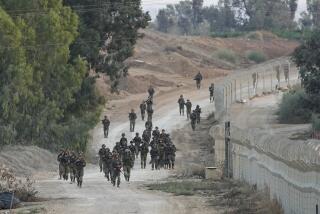‘We Made Mistakes’
- Share via
WASHINGTON — These are excerpts from the opening remarks of CIA Director George J. Tenet to the commission:
I welcome the opportunity to appear before the commission and the American people to address the performance of the intelligence community in the period leading up to Sept. 11, 2001. First, some context.
By the mid-1990s, the intelligence community was operating with significant erosion in resources and people and was unable to keep pace with technological change. When I became [director], I found a community and a CIA whose dollars were declining and whose expertise was ebbing.
* We lost close to 25% of our people and billions of dollars in capital investment.
* The pace of technological change ... challenged the National Security Agency’s ability to keep up with the increasing volume and velocity of modern communications.
* The infrastructure to recruit, train and sustain officers for our clandestine services ... was in disarray.
* We were not hiring new analysts, emphasizing the importance of expertise or giving analysts the tools they needed.
I also found that the threats to the nation had not declined or even stabilized but had grown more complex and dangerous.
The rebuilding of the intelligence community across the board became my highest priority....
Building our overall capabilities would be instrumental in how we positioned ourselves against Al Qaeda and its terrorist organizations that represented a worldwide network in 68 countries and operated out of a sanctuary in Afghanistan.
We also needed an integrated operations and collection plan against Al Qaeda. We had one. I have previously testified about the 1999 strategy that we called simply “The Plan.” The Plan required that collection disciplines be integrated to support worldwide collection and disruption and penetration operations inside Afghanistan and other terrorist sanctuaries. CIA’s Counter-Terrorist Center, CTC, was our operational focus.
In 1998, after the East Africa bombings, I directed the assistant director of central intelligence for collection to ensure that all elements of the intelligence community had the right assets focused on the right problem with respect to Al Qaeda and [Osama] bin Laden.
He convened frequent meetings of the most senior collection specialists ... to develop a comprehensive approach to support the Counter-Terrorist Center’s operations against Bin Laden.
The intelligence we provided to our senior policymakers about the threat Al Qaeda posed ... was clear and direct. [The] warning was well understood even if the timing and method of the attacks were not.
* The intelligence community had the right strategy and was making the right investments to position itself for the future and against Al Qaeda specifically.
* We made good progress across intelligence disciplines in attacking Al Qaeda....
* However, we never penetrated the 9/11 plot. While we positioned ourselves very well with extensive human and technical penetrations to facilitate the takedown of the Afghan sanctuary, we did not discern the specific 9/11 operational plot.
We made mistakes. Our failure to watch-list [San Diego-based hijackers Nawaf Alhazmi and Khalid Almihdhar] in a timely manner or the FBI’s inability to find them in the narrow window of time afforded them showed systemic weaknesses and the lack of redundancy....
But most profoundly, we lacked a governmentwide capability to integrate foreign and domestic knowledge, data, operations and analysis....
Let me now describe some of the changes we have made since the 9/11 attacks.
On the terrorism issue, the crucial importance of sharing data was greatly assisted by the Patriot Act. It also is being addressed with the creation of the Terrorist Threat Integration Center, TTIC.
TTIC is capturing in one place data available in FBI and CIA operational files and data from domestic agencies and the foreign intelligence community. You will hear more about TTIC later today from its director.
We have spent enormous time and energy transforming our collection, operational and analytic capabilities. The first thing I would say to the commission is that the care and nurturing of these capabilities is absolutely essential.
It will take us another five years of work to have the kind of clandestine service our country needs. There is a creative, innovative strategy to get us there that requires sustained commitment and funding.
More to Read
Sign up for Essential California
The most important California stories and recommendations in your inbox every morning.
You may occasionally receive promotional content from the Los Angeles Times.













